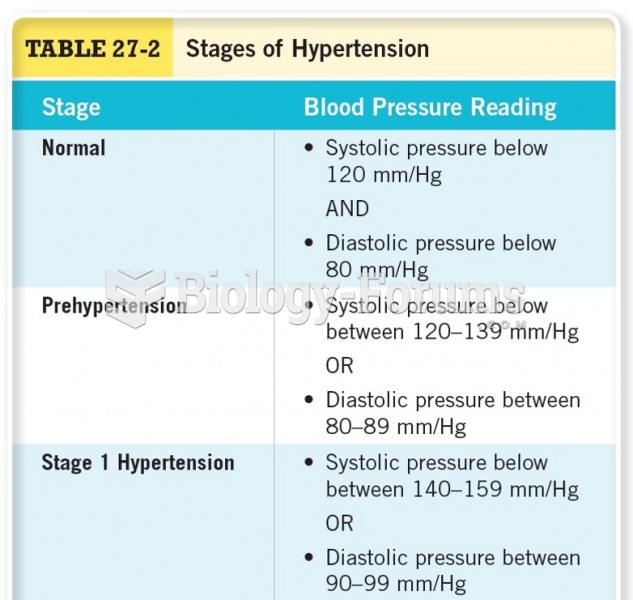|
|
|
For high blood pressure (hypertension), a new class of drug, called a vasopeptidase blocker (inhibitor), has been developed. It decreases blood pressure by simultaneously dilating the peripheral arteries and increasing the body's loss of salt.
Between 1999 and 2012, American adults with high total cholesterol decreased from 18.3% to 12.9%
Women are 50% to 75% more likely than men to experience an adverse drug reaction.
A recent study has found that following a diet rich in berries may slow down the aging process of the brain. This diet apparently helps to keep dopamine levels much higher than are seen in normal individuals who do not eat berries as a regular part of their diet as they enter their later years.
Excessive alcohol use costs the country approximately $235 billion every year.







